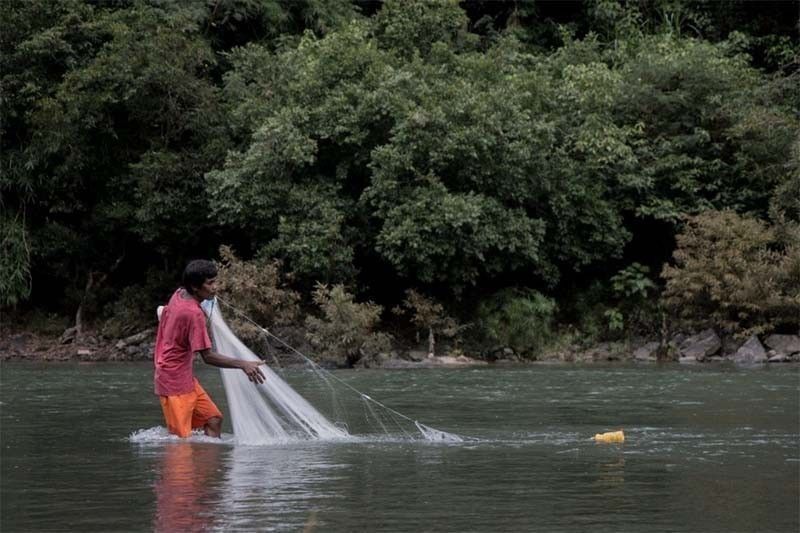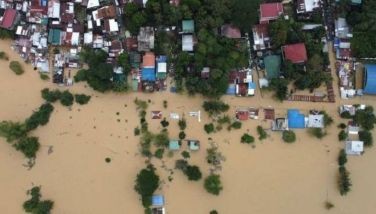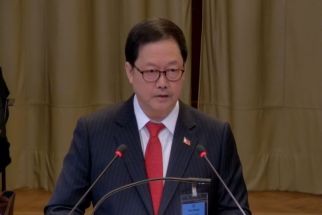MOA for China-backed Kaliwa Dam signed despite Dumagats' protests

MANILA, Philippines — After years of opposition, Dumagat-Remontado communities signed a memorandum of agreement for the P12-billion Kaliwa Dam project, which will inundate their lands and livelihood in the Sierra Madre mountain range.
Metropolitan Waterworks Sewerage System Administrator Leonor Cleofas told Philstar.com that the MOA with the Dumagat communities in Quezon province was signed on January 28.
But Dumagat leaders opposed to the project protested the signing of the agreement, saying it was railroaded.
Conchita Calzado said the invitation sent to select community leaders indicated that the gathering facilitated by the MWSS and the National Commission on Indigenous Peoples last week was only to validate the MOA and discuss the community royalty development program.
She also said the signatories to the agreement were not recognized by the larger Dumagat community.
"Dapat ang lahat ng pag-uusap tungkol sa Kaliwa Dam ay malinaw sa lahat ng miyembro ng Dumagat-Remontado sa bawat komunidad. Kung kaya’t hiniling ng aming grupo na ibaba muna ang draft ng MOA at CRDP formulation sa komunidad sa halip na ituloy ang MOA signing. Subalit hindi ito sinunod ng NCIP free, prior and informed consent team," Calzado said in a briefing Thursday.
(All discussions about Kaliwa Dam should be clear to all members of the Dumagat-Remontado communities. That's why our group asked if the draft of the MOA and CRDP can be brought to the community instead of pushing through with the MOA signing. But it wasn't done by the NCIP free, prior and informed consent team.)
The agreement with the indigenous peoples in Rizal province was signed on December 10, according to the MWSS.
Clara Dullas, a Dumagat representative in Rizal, said the MOA was signed despite violations in the FPIC process and the non-inclusion in negotiations of other community members opposed to the dam project.
“Ang mga dumalo doon ay pili. Kung sino ‘yung pabor sa project, ‘yun ang nakadalo sa MOA signing na hindi dapat ‘yun ginawa sa amin ng NCIP. Alam naman nila na di lang ‘yung kanilang inimbatahan ang IP dahil di naman totoo na bitbit ng dumalo ang kagustuhan ng community,” Dullas said.
(The attendees were pre-selected. Only those in favor of the project were at the MOA signing, which NCIP should not have done to us. They know that the IP community is more than just the people they invited. The people who attended were not bringing the true sentiments of the community)
“‘Yung nilalaman ng MOA ay di rin nakita o nabasa kaya di alam kung ano ang nasa MOA na pinirmahan ng ibang lider,” she added.
(The people did not see the contents of the MOA so they did not know what was in the agreement that some leaders signed)
P80 million for ‘disturbance compensation’
A copy of the MOA obtained by Philstar.com states that the MWSS will give communities P80 million as indemnity to the disruption that will be brought by the project, and as reparation for damages caused by the construction of the dam and inundation of particular areas of the communities’ ancestral domain, including sacred sites.
Environmental scientist Ruben Guieb said the amount was insufficient.
The 60-meter-high reservoir of the New Centennial Water Source-Kaliwa Dam Project will cover 291 hectares of the Kaliwa Watershed Forest Reserve and the adjoining ancestral domains of the Dumagat-Remontado communities in General Nakar, Quezon and Tanay, Rizal.
A 28-kilometer-long conveyance tunnel will be built from the dam site in Brgy. Magsaysay in Infanta, Quezon through several barangays in Tanay, Baras, Morong and Teresa towns in Rizal.
According to government data, 1,465 households in three villages in Rizal and Quezon will be affected by the China-backed dam project. Of the figure, 1,041 "will be at risk of flooding and other effects of possible dam failure or dam break."
The agreement also states that the MWSS will give an annual benefit amounting P1 million to each of the 36 IP communities in Rizal and Quezon. The amount will be payable upon the completion of construction and commencement of commercial operations.
'Fight not yet over'
Conrad Vargas, executive director of the Save Sierra Madre Network Alliance, stressed that the indigenous communities are not the only stakeholders who need to be meaningfully consulted.
Under the Local Government Code, the MWSS is required to go through public consultations and obtain permits from the affected local governments before the project begins.
Fr. Pete Montallana, STOP Kaliwa Dam Network convenor, called on candidates in the May polls to revoke the memorandum of agreement for Kaliwa Dam and the project itself.
- Latest





























